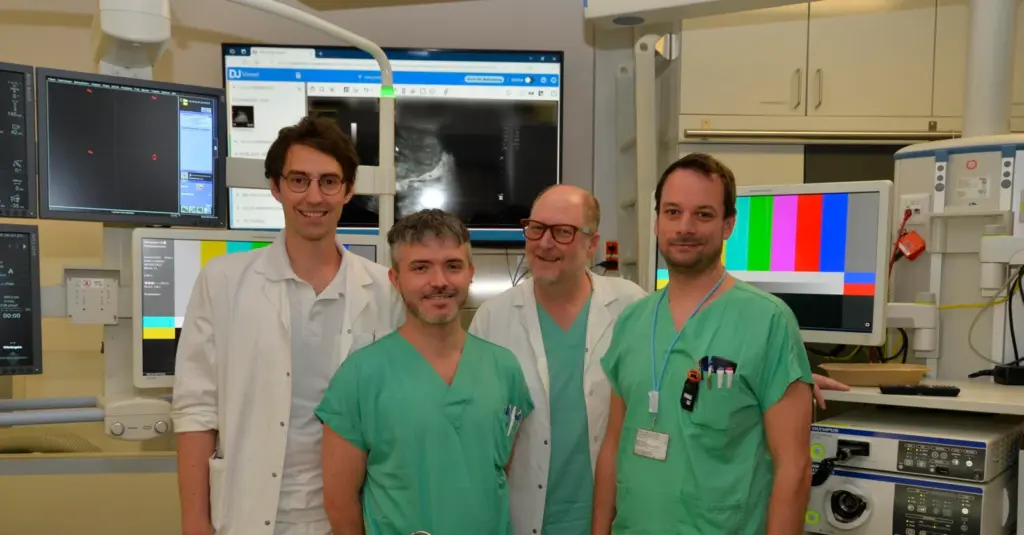Krems, Austria, 24. June 2025 –Young doctors can distinguish between harmless and dangerous colon polyps during a colonoscopy just as reliably as experienced specialists – provided they are assisted by artificial intelligence (AI). This is the finding of a medical study from Lower Austria. The study examined the quality of the „optical diagnosis“ made by endoscopy trainees when supported by the GI Genius® AI system. The results were striking: junior doctors achieved diagnostic accuracy comparable to their experienced colleagues. The study, which has been published internationally, was conducted by the University Hospital St. Pölten, a teaching and research centre of the Karl Landsteiner University of Health Sciences (KL Krems). These results could make colorectal cancer screening safer, more efficient, and more cost-effective – while also enhancing medical training.
Colorectal cancer is one of the most common types of cancer in Europe, but timely screening can be highly effective in preventing it. Colonoscopy is considered the gold standard for this purpose. It enables potentially dangerous colon polyps to be detected and removed at an early stage. However, accurately distinguishing between benign and potentially malignant polyps requires significant expertise. This type of assessment is known as „optical diagnosis“. Until now, only internists with years of experience have been able to make such assessments with confidence. The new study aims to pave the way for less experienced physicians to make equivalent assessments. The study was conducted at the Divsion of Internal Medicine 2 at St. Pölten University Hospital (a teaching and research centre of KL Krems) under the direction of Prim. PD Dr. Andreas Maieron.

